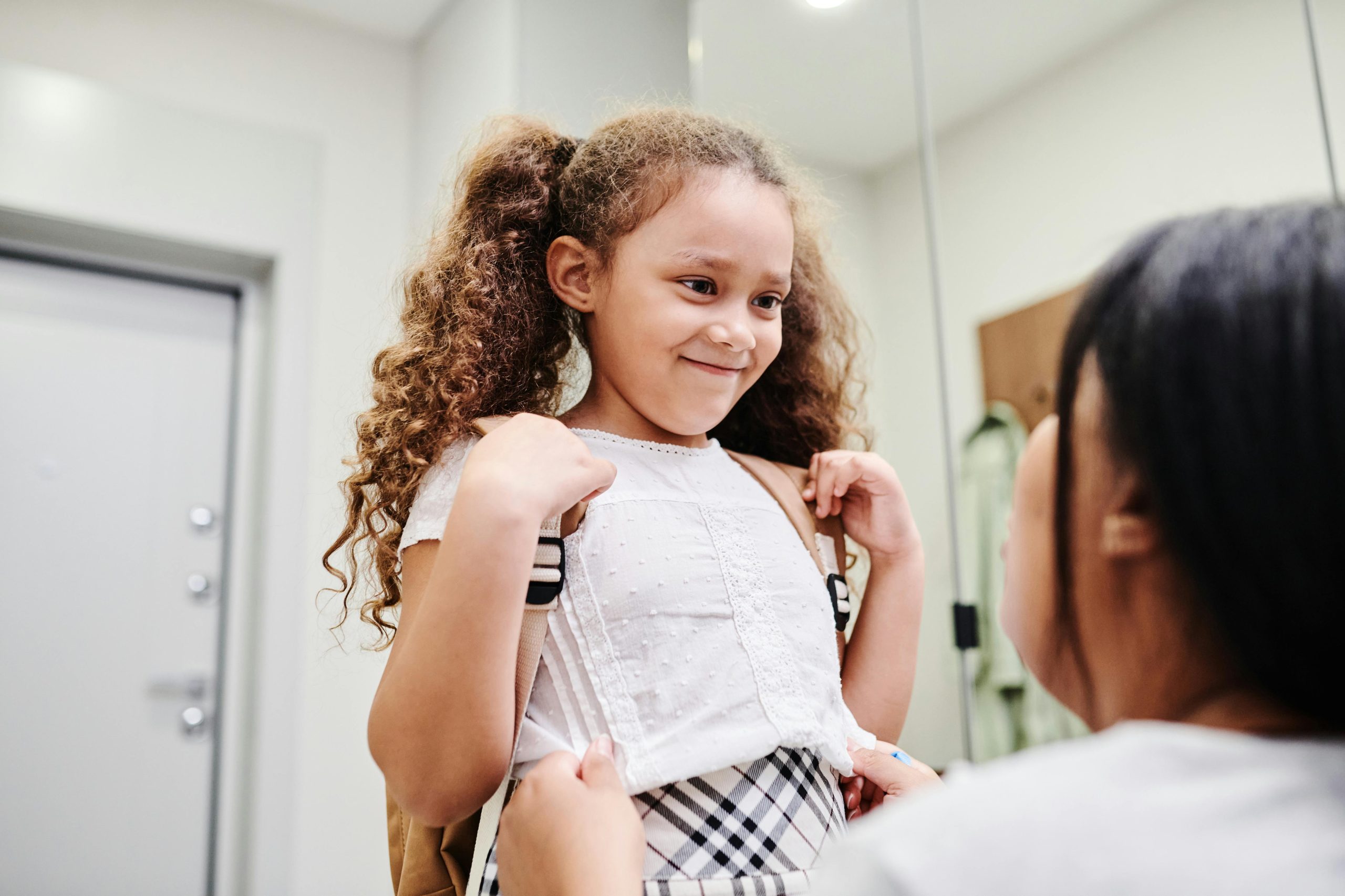

By Dr Georgia Meisel, Child Psychologist at Kidswell Health
The leap from primary to secondary school is one of the biggest educational milestones in childhood. Children leave behind the security of one familiar classroom and teacher, and instead navigate to an often much larger school environment with multiple teachers, new peers, and higher expectations.
For many families, this change can stir up a mixture of excitement and anxiety. While some children can’t wait to enjoy more independence, others may feel nervous about getting lost, making friends, or coping with homework. Both responses are completely normal.
Our child psychologists at Kidswell Health share practical strategies to help you guide your child through this important transition.
Secondary school isn’t just a step up academically, it’s also a social and emotional shift. Children are learning to balance:
These new demands can be daunting, but with the right preparation and reassurance, children usually adapt within the first term.
If your child will be travelling independently, walk or ride the route together before the first day. Practising the journey helps reduce worries about getting lost or arriving late.
Show your child how to use their timetable, pack their school bag the night before, and organise homework. Many children feel calmer once they know how to manage these practical tasks.
Friendships are a major source of both joy and anxiety at this age. If possible, arrange meetups over the summer with peers who are going to the same school. Encourage your child to join clubs or activities in the first few weeks, which can help them meet like-minded friends.
Ask open-ended questions that invite more than a yes/no answer. For example, instead of “How was school?”, try “What was the best part of your day?” or “Who did you sit with at lunch?” Gentle, regular conversations help you spot if your child is struggling.
It’s natural to want to step back as your child grows, but don’t underestimate how much they still need your support. Show trust by giving them more responsibility, while making sure they know you’re always available if they need help.
“What if I get lost?”
Reassure your child that teachers expect this in the first weeks and will help. Encourage them to ask for directions or walk the route between classrooms during open days.
“What if I don’t know anyone?”
Remind them that many children are in the same position. Encourage joining activities or clubs early as shared interests are one of the fastest ways to build friendships.
“What if I can’t keep up with homework?”
Help your child set up a quiet, organised study space at home. Work with them on time management strategies such as breaking tasks into smaller chunks.
It’s common for children to feel anxious at first, but if worries persist beyond the first term or start interfering with daily life, such as ongoing sleep problems, refusal to attend school, or frequent physical complaints like stomach aches, it may be time to seek professional support.
At Kidswell Health, our child psychologists can help children build resilience, manage anxiety, and develop coping strategies to thrive in their new environment. Early intervention can prevent small worries from becoming bigger barriers to learning and confidence.
The move to secondary school is a big step, and like all big steps, it comes with both challenges and opportunities. With preparation, reassurance, and open communication, your child can not only adapt but also grow in confidence and independence.
✨ In Part 3 of our Back to School series, we’ll explore how to support older teens as they transition from secondary school to college, university, apprenticeships, or work, and how parents can guide them through this exciting but often daunting leap into young adulthood.
Learn about hand, foot and mouth disease in children - early signs, treatment, contagious period, and when your child can…
Learn about RSV symptoms, causes, and treatment. Understand how to spot signs early, protect your baby and when to seek…
When a child is finding emotions, behaviour, learning or relationships difficult, parents often come across many different professional titles and…
By Debra Silver, Paediatric Physiotherapist at Kidswell Health Watching your baby reach new milestones is one of the most exciting…
Learn about positional talipes in newborns and babies: causes, treatment, recovery time, and how physiotherapy at Kidswell Health can help.
Dr Mitsu Shah explains common side effects of baby vaccinations.